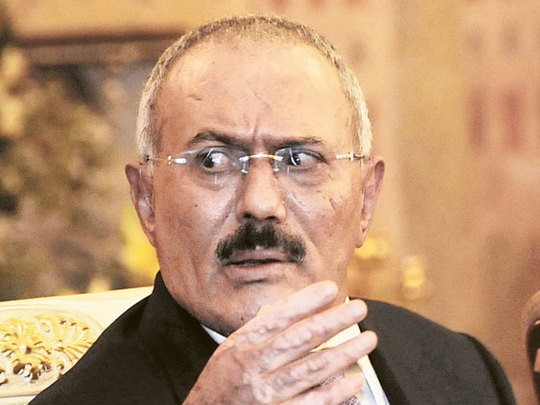
I'll believe it when I see it, many observers must have thought to themselves, when it became apparent that a calm and moderated debate would be held in Cairo on May 10 between two leading presidential candidates — Amr Mousa and Abdul Moneim Abu Al Fotouh.
This was to be followed by other debates between people like Mohammad Salim Al Awwa, Ahmad Shafiq and Hamdeen Sabbahi. I thought everything was orderly and civilised, showing that a nation which had no such experience for three decades under Hosni Mubarak, was quite capable of organising such events.
Why? Because the people who participated were there all along, ready and able to showcase the democratic process given half a chance. It was therefore with admiration, if not with pride, that I watched the debates, imagining all the time how much pride Egyptians would feel.
And so a new chapter has begun in Egypt, as it did in Tunisia and later in Algeria. Nothing on earth is going to reverse these gains, very modest by western standards, but monumental by Arab and African benchmarks.
In fact, in this month of May, there are four presidential or parliamentary elections taking place in Africa alone. The age of military coups followed by decades-long military dictatorships is rapidly coming to an end in the Middle East, and will be complete with the fall of the regime in Syria, within months, if not weeks.
The naysayers will patronise Egyptians and continue to warn them about being ruled by Islamists or other groups with agendas of their own. To these, many Egyptians will probably say that they have experienced military dictatorships long enough, and that they are willing to try a different system — at least on probation.
Glaring difference
By next month, the most populous and most important Arab country will have a new government and governance, and life will go on, but the Middle East and its relationship with the US, Europe and Israel will not be the same.
By contrast, the outcome in Yemen does not look half as good. The glaring difference is that while Mubarak and his sons are languishing in jail, awaiting the completion of their trials and the outcome of their prosecutions, Ali Abdullah Saleh has been given the sweetest deal a tyrant could dream of: He is being allowed to remain in Yemen and keep his enormous wealth, with which he can buy influence in a destitute country where money will buy you anything you desire.
Some members of his family continue to control vital segments of the armed forces in Yemen under the pretext of combating terrorism. He continues to be chairman of his Congress party, and therefore half the members of the cabinet take orders from him, rather than from Prime Minister Mohammad Basindwah, or at the very least, consider him their inspiration.
His party is openly threatening to nominate Saleh as a candidate in the 2014 presidential elections. Imagine for a moment if Mubarak was running loose in Egypt with billions in his accounts, and that Jamal Mubarak was contesting the presidential elections in June, and Alaa Mubarak was running national security or the presidential guard. Yes, it is that ridiculous.
Why is Yemen in that situation? It is because as many people, including Nobel Laureate Tawakkul Karman have pointed out at the time, the Gulf Cooperation Council peace deal extracted by the wily Saleh was a monumental mistake. That mistake was supported by the US, whose singular concern was Al Qaida, and accepted by the opposition parties led by the hapless Yemeni prime minister, and by president Abd Rabbo Mansour Hadi, none other than Saleh's silent partner for decades.
Inner circle
The word ‘immunity' has been bandied about so much since, coupled with the expression ‘inner circle'. Thus, it is not clear who is included in the inner circle. In Yemen, where the ‘extended family' can include one's fourth cousin, twice removed, the inner circle seems to be very huge indeed.
There should not have been any immunity granted or promised to Saleh, since that is against the basic principles of human rights. But to fail to define ‘inner circle' makes a travesty of the rights of the victims of tyranny.
What should have happened, and what should happen now, is that a presidential ultimatum must be issued to Saleh and his so-called inner circle. He must be told that immunity is off unless he leaves the country and the Congress party. His ‘inner circle' must leave their military posts, and those members of the cabinet who held ministerial positions in the last government, especially in national security, defence and foreign affairs, must resign.
The situation in Yemen evokes despair because I cannot imagine that any of this will ever happen; not after I watched Basindwah's interview conducted by Sami Zaidan of Al Jazeera. Here was the previously tearful-on-TV prime minister telling Zaidan that he did not even know whether American drones were being flown in the skies of his country, and referring him to the Yemeni military brass to answer that question.
Even school children in Japan could have answered Zaidan with a straight and emphatic ‘yes'.
Dr Qais Ghanem is a retired neurologist, radio show host, poet and novelist. He has authored two novels namely Final Flight from Sana'a and Two Boys from Aden College. He lives in Canada.








